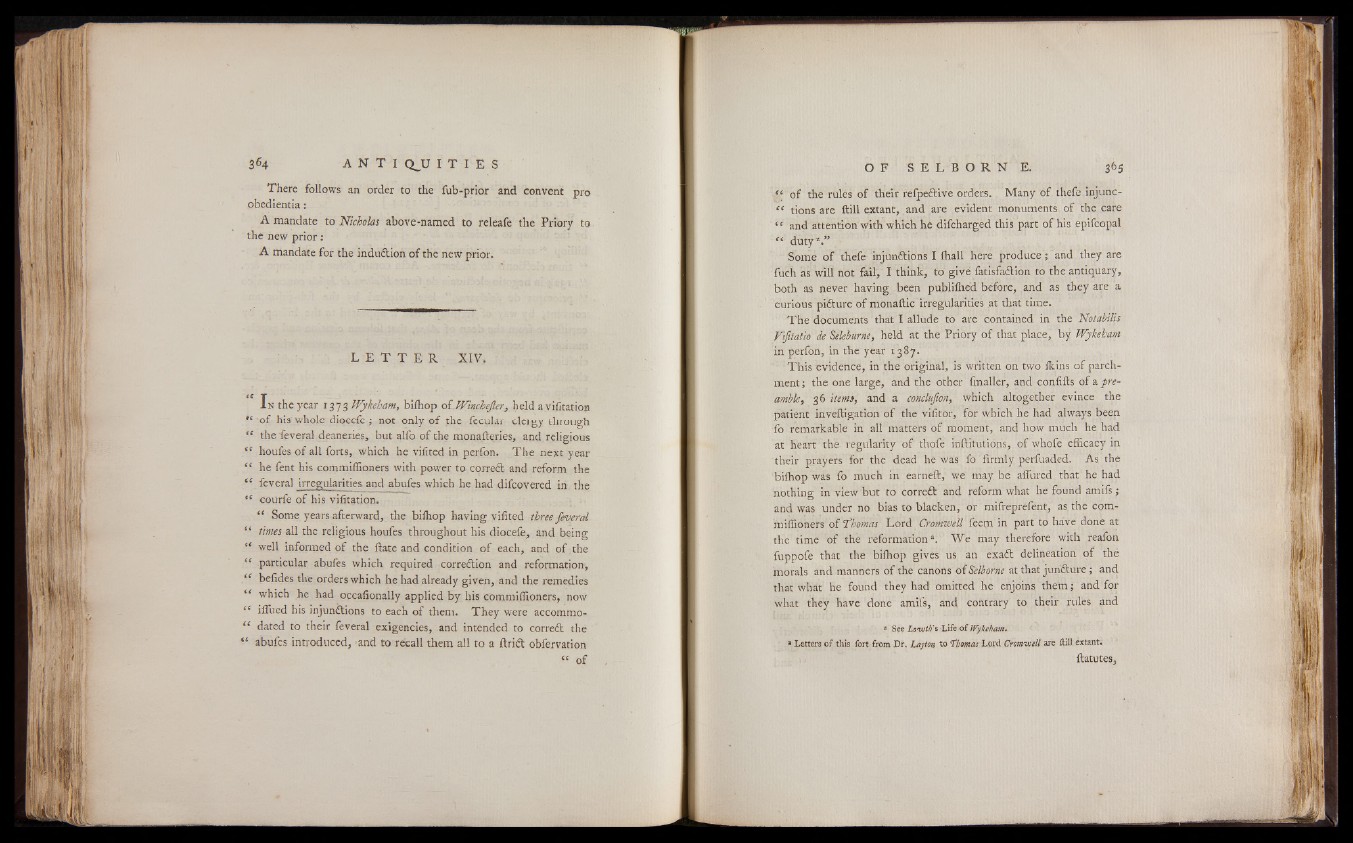
There follows an order to the Tub-prior and convent pro
obedientia:
A mandate to Nicholas above-named to releafe the Priory to
the new prior:
A mandate for the induftion of the new prior.
L E T T E R XIV.
I n the year 1373 Wyfoham, bilhop o f Winchejler, held a vifitation
;| 'of his whole diocefe; not only of the fecular clergy through
“ thefeveral deaneries, but alfo of the monafteries, and religious
m houfes of all forts, which he vilited in perfon. The next year
“ he fent his commiffioners with power to corredt and reform the
“ feveral irregularities and abufes which he had difcovered in the
If; courfe of his vifitation.
“ Some years afterward, the bilhop having vilited three feveral
“ times all the religious houfes throughout his diocefe, and being
“ well infonned of the ftate and condition of each, and of the
“ particular abufes which required corredtion and reformation-,
“ befides the orders which he had already given, and the remedies
“ which he had occafionally applied by his commiffioners, now
“ ilfued his injunctions to each of them. They were accommo-
“ dated to their feveral exigencies, and intended to corredt the
“ abufes introduced, and to recall them all to a ftridt obfervation
“ of
“ of the rules of their refpedtive orders. Many of thefe injunc-
tions are Hill extant, and are evident monuments of the care
“ and attention with which he difeharged this part of his epifcopal
“ duty “.”
Some of thefe injundtions I fhall here produce; and they are
fuch as will not fail, I think, to give fatisfadtion to the antiquary,
both as never having been published before, and as they are a
curious pidture of monaltic irregularities at that time. •
The documents that I allude to are contained in the Notabilis
Vifitatio de Seleburne, held at the Priory of that place, by Wykekam
in perfon, in the year 1387.
This evidence, in the original, is written on two lkins of parchment;
the one large, and the other fmaller, and confifts of a preamble,
36 items, and a conclujion, which altogether evince the
patient inveftigation of the vifitör, for which he had always been
fo remarkable in all matters of moment, and how much he had
at heart the regularity of thofe inftitutions, of whofe efficacy in
their prayers for the dead he was fo firmly perfuaded. As the
bilhop was fo much in earned, we maybe alfured that he had
nothing in view but to corredt and reform what he found amifs;
and was under no bias to blacken, or mifreprefent, as the commiffioners
of 'Thomas Lord Cromwell feem in part to have done at
the time of the reformation3. We may therefore with reafon
fuppofe that the bifhop gives us an exadt delineation of thé
morals and manners of the canons of Selborne at that jun'dture; and
that what he found they had omitted he enjoins them; and for
what they have done amifs, and contrary to their rules and
z See Lowth's Life of Wykeham.
* Letters of this fort from Dr. Layton to Thomas Lord Cromwell are Hill extant.
ftatutes5